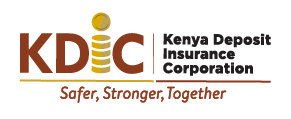
Our Journey with The Debate Circle
Empowering the Future through Financial Literacy and Dialogue
At the Kenya Deposit Insurance Corporation (KDIC), our mandate extends beyond securing depositor’s funds. We are committed to building a financially literate, empowered, and inclusive society. One of the most impactful ways we do this is by engaging with young minds across Kenya through partnerships that align with our mission.
One such partnership is with The Debate Circle (TDC), a platform that has opened spaces for value-based debates and public awareness, particularly among high school and university students. Since joining this journey, KDIC has played an active role in shaping discourse around financial literacy, inclusivity, and economic empowerment, with a focus on preparing the youth for their roles in Kenya’s socio-economic transformation.
The Debate Circle’s regional model aligns closely with KDIC’s goal of nationwide financial education. Over the course of this year’s debate season, we witnessed a lively engagement from students across 12 diverse regions:
1. Nairobi Region
2. North Coast Region
3. South Coast Region
4. Kakamega Region
5. Lower Eastern Region
6. Upper Eastern Region
7. Lakeside Region
8. Nyeri Region
9. Nakuru Region
10. Eldoret Region
11. Kiambu Region
12. Kisii Region
In each region, young debaters tackled various national themes, including saving culture, insurance awareness, economic inclusion, and the role of youth in shaping Kenya's financial future. The debates served as a ground for sharing knowledge and building capacity among Kenya’s next generation of leaders.
The 2025 National Debate Finals held on Sunday, 3rd August 2025 marked the culmination of months of dialogue and competition. The event brought together regional champions, educators, financial sector leaders, and public officials to witness a showcase of critical thinking and civic engagement.
We celebrate Jamhuri High School, who emerged as this season’s champions. Their win is symbolic of the broader mission, to raise students who are not just academically strong, but also financially aware and socially responsible.
Representing the Corporation and the CEO at the finals weekend was David Irungu, KDIC’s Director of Bank Resolution. Speaking to the students and stakeholders, David emphasized the transformative power of financial literacy, not merely as a tool for personal wealth, but as a national development strategy.
“Financial literacy is about empowering the students. And by participating in this event, they are already ahead. It is not just about making money, it is about keeping money, understanding it, and building a future with it.” David Irungu.
He also focused on gender equality and inclusivity, encouraging young girls to see themselves as future policymakers, economists, and financial leaders. Framed from an insurance and resilience perspective, his message resonated strongly with the core values of both KDIC and the Debate Circle.
Our involvement was intentional and strategic. Through the Debate Circle, we aimed to:
- Create public awareness around savings, insurance, and responsible financial habits.
- Promote critical thinking and civic participation among youth.
- Advance inclusivity, particularly for marginalized regions and underrepresented voices.
- Contribute to policy development by listening to the voices of the youth and incorporating their perspectives into our strategic frameworks.
Our presence at these debates allowed us to listen, learn, and contribute toward a generation that understands the difference between earning and managing wealth. These students are future policy influencers, industry innovators, and community builders.
As we move forward, KDIC remains committed to expanding this partnership and enhancing our youth-centered financial literacy programs. Through platforms like The Debate Circle, and in collaboration with stakeholders such as the Kenya Bankers Association (KBA) and other financial institutions, we believe that we are not only educating the youth but also building a financially resilient nation.







